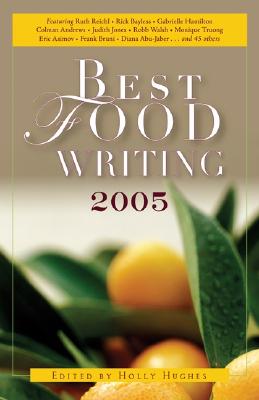 | ||||||||||||
|
|
Stephanie, I'm a faithful Grub Report fan (love Tea for Kecklers and Cheese Whore references ... but curious why you didn't flush icky foods down the toilet as a teen, ever so much more convenient than stashing meat bits behind books.) Can you help me with a recommendation? I can't seem to hit on the right balsamic vinegar. I grew up on salads made with a homemade Thousand Island dressing of 1 part mayo to 1 part ketchup with a dash of Lawry's seasoning salt, and a dash of bottled chili sauce only if my Dad was away (otherwise, that addition was too high falutin'). Graduated to Marie's bottled bleu cheese dressing when I grew up. Now, I'd really prefer to exhibit a little more class and have really learned to enjoy a GOOD balsamic drizzle on greens and vegetables, but I can't find one that tastes as sweet and thick and pungent as the version I had at Olive's restaurant (Todd English) at the Bellagio. It was a salad of tuna on flat bread with thick, gorgeous, dime-sized drops of black balsamic vinegar, that was viscous like honey and DIVINE. I'm wondering now if those drops of thick, black, gooey vinegar were actually from a reduction, and not just vinegar? I have purchased several varieties of what I was thought was quality balsamic (based on price), but it's thin and vinegary. What is a good brand of the "older stuff" that may cost more, but has been aged longer and is more akin to that deep thick and viscous stuff I'm looking for? I even found, tonight a "Balsamic Reduction" by NapaStyle that professes to have reduced it for me. What say you? Any recommendations? I'll spend up to $50 or so. I need it for the Brussels sprouts that you got me hooked on, too. Kristina
Dear Kristina, We totally tried to do the flushing thing, but some things wouldn't flush -- the inedibles came back up! I sympathize with your balsamic plight, but I'm afraid those kinds of vinegars aren't easily found. The only time I've had it stand up that thick on a plate was when I tasted a 30-year-old vinegar at culinary school. The tasty folks over at my college haven, Zingermans, sell it for $75.00. Balsamic vinegar becomes thicker (and more expensive) the longer it was aged before bottling. Oh, but it is soooo good, isn't it? If you do buy the expensive vinegar, I would seriously warn you against using such a fine product on the roasted Brussels sprouts. The high heat of the oven will materially change the vinegar, which is already perfect, and for me, that's a major waste of even the smallest amount of the black gold. Use the rich thick stuff raw on things like sliced strawberries or peaches in the summer, or to "finish" a piece of grilled fish, or even as a garnish on the side of something, like a mushroom tart. I've even dropped dab of the 100-year-old vinegar on a sliver of Parmigiano-Reggiano and known heaven in that smallest of tastes. Just please don't cook it. I would also tell you the same thing about very fine olive oil -- heat denatures it, so use the really good olive oil in salads or to finish already-cooked dishes. You can use your Colavita or Bertolli workhorse olive oil when roasting or sautéeing food. If you want to find a good, everyday-ish balsamic vinegar that isn't too, to use your word, "vinegary," I'd suggest Stonehouse's Dark Balsamic or O Balsamic. For an even sweeter taste, give O Port vinegar a whirl -- that's the one I'm using in my Brussels sprouts these days. And hey, you put any of those vinegars in the oven with the sprouts and it will reduce, get sweeter, and become syrupy and caramelized all on its own as the sugars break down. As good as I think his food is, I do question whether Todd English would be using $75.00 bottles of vinegar in his restaurants. It's not something you can buy in bulk, and for that reason, I think your assumption that it might have been a reduction is probably more accurate. If you want to have your own balsamic vinegar syrup on hand try this:
Balsamic Vinegar Syrup Cheers, Keckler/Stephanie
| |||||
|
| |||||
|
|
|




